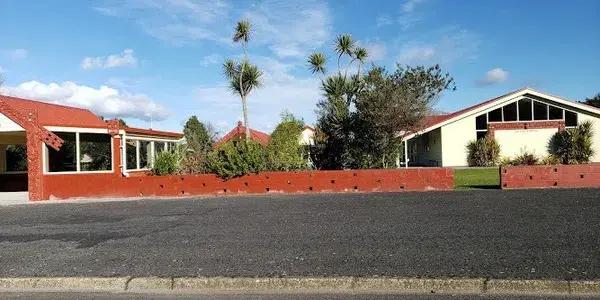
Waiteti Marae
Ngongotahā, Rotorua, Bay of Plenty
Host memorable events at Waiteti Marae, a cherished Māori cultural venue in Ngongotahā, Rotorua. Embrace tradition for hui, tangihanga, and weddings.
About Waiteti Marae
About Waiteti Marae
Waiteti Marae stands as a vital Māori cultural venue in Ngongotahā, Rotorua, within the heart of the Bay of Plenty region. This sacred space serves as a central gathering place for the local iwi (tribe) and wider community, embodying the essence of Māori traditions and values. Like many Maraes, Waiteti Marae is home to a wharenui (meeting house), which is often intricately carved and represents the ancestors and stories of the people. It is a place where history, identity, and spirituality converge, offering a unique setting for significant life events and communal activities rooted in tikanga (Māori protocols).
As a cornerstone of cultural preservation, Waiteti Marae provides a space where past and present meet, welcoming both locals and visitors who respect its sacred nature. Whether hosting community discussions or ceremonies, this Marae is dedicated to upholding the mana (prestige) of its people and ensuring that traditions are passed on to future generations.
Cultural Significance of Waiteti Marae
Every Marae, including Waiteti Marae, holds immense cultural significance as a Māori community hub in Ngongotahā and beyond. Maraes are more than physical spaces; they are the heartbeat of Māori identity, where whanaungatanga (kinship and relationships) is nurtured, and manaakitanga (hospitality and care) is extended to all who enter. This welcoming spirit ensures that guests, whether local or from afar, feel a deep sense of connection during their time at the Marae.
Waiteti Marae is often a venue for traditional events such as hui (formal gatherings), tangihanga (funerals to mourn and honor the deceased), and weddings, where Māori customs and tikanga guide proceedings. These occasions are marked by shared stories, waiata (songs), and karakia (prayers), reinforcing cultural ties and communal strength. Visitors are encouraged to respect the protocols, such as the pōwhiri (welcome ceremony), which often precedes events and signifies the joining of hosts and guests in unity.
The Marae also plays a pivotal role in educating younger generations about their heritage, ensuring that te reo Māori (the Māori language) and cultural practices endure. By hosting Marae events, Waiteti Marae facilitates a space for dialogue, reflection, and celebration, aligning with the enduring Māori worldview of interconnectedness between people, land, and ancestors.
Discover Ngongotahā, Rotorua
Overlooking the serene landscapes of Ngongotahā in Rotorua, Waiteti Marae is positioned in one of New Zealand’s most culturally rich regions, the Bay of Plenty. Ngongotahā, a small town near Lake Rotorua, is steeped in Māori history and is known for its natural beauty, geothermal activity, and strong ties to indigenous heritage. This location makes it an ideal setting to host events at a Marae in Ngongotahā, where participants can engage deeply with cultural ceremonies while surrounded by the stunning environment of the area.
Rotorua, often called the cultural heartland of Aotearoa, is renowned for its living Māori culture, evident in attractions like the Māori villages and thermal valleys nearby. Visitors seeking to engage in cultural ceremonies in Ngongotahā or experience Māori traditions firsthand will find Waiteti Marae and its surroundings a fitting backdrop. The region’s history of Māori settlement and storytelling adds depth to any event held at the Marae, enriching the experience for all involved.
Beyond the Marae, Ngongotahā offers access to iconic natural landmarks such as Lake Rotorua and the surrounding hills, providing an opportunity for guests to explore the area’s unique landscapes before or after events. This blend of cultural immersion and scenic allure underscores why Waiteti Marae and its location are a treasured venue for meaningful gatherings, connecting people not only to each other but also to the whenua (land) that sustains them.